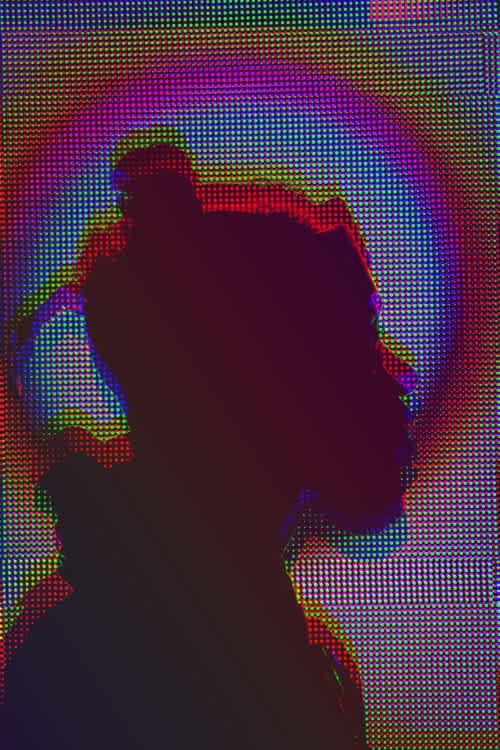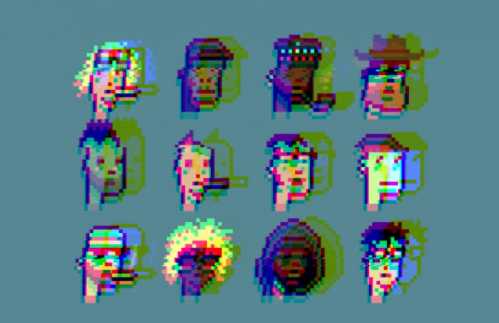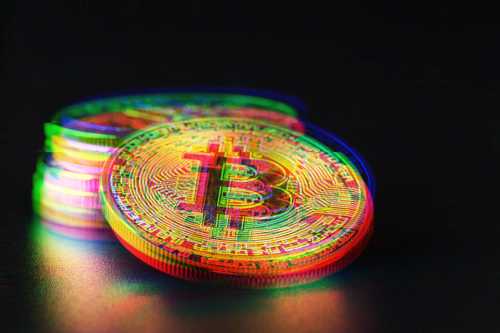Decentralized Autonomous Organizations are hot, and getting hotter
Cryptocurrencies and Non-Fungible Tokens (NFTs) are symptoms of a traditional system that failed to deliver on its promises. Proponents of these technologies see them as cultural shifts and have coalesced into online communities embracing transparency and decentralization. They’ve decided that, obviously, these communities should not replicate current organizations, opaque and hierarchical as they are. That wouldn’t be in line with Web3’s ethos. They must be decentralized, and blockchained, to reflect a crypto-society that seeks to become mainstream. Resolving existing issues within today’s organizational structures would be a bonus.
And thus were born Decentralized Autonomous Organizations, or DAOs.
Easy DAO Definition
The tech community has a habit of making simple concepts difficult. This needn’t be the case. In short, DAOs are how humans come together as a group to make decisions in the digital world. They do so with the help of two key tools. Firstly, the rules that govern the organization are expressed as a series of digital “IF/THEN” statements, that are then coded directly into a blockchain (thus rendering them both auditable and permanent). Secondly, voting shares are issued to stakeholders in the form of “digital governance tokens” — also recorded on a blockchain. Doing things this way replaces, in theory, both the legal mumbo jumbo of today’s organizations (as rules are coded) and their hierarchical nature (as everyone has a voice).
In theory, all sorts of work structures can be created as a Decentralized Autonomous Organization. The concept can be used to create investment companies, consulting companies, engineering companies… but the reality is a little bit more complicated than I let on.
Complete DAO definition
To fully understand DAOs, it’s best to define the acronym one word at a time.
D is for Decentralized
Decentralization in the context of DAOs means that, in theory, no one person holds the power to make decisions alone. They are instead made through votes recorded on dozens of computers (the blockchain), thus democratizing the entire process. Instead of voting using pieces of papers, “tokens” are used. These tokens are created and attributed to contributors based on previously agreed rules: money invested, time spent on the project, tools created… The organization is thus member-owned, without a traditional hierarchical pyramid.
Using blockchain technology to record votes and rules also helps decentralize the organization: casting votes to a single entity would mean trusting said entity to not alter the will of the people. This is a system that can be played. A blockchain forces instead dozens or hundreds of people to agree on one version of the truth. Said truth is forever auditable, by anyone with an internet connection, and cannot be changed. We thus remove the need for third parties like notaries and auditors. This is one of the key factors DAO creators bring forward when asked about the benefits of this new structure.
Finally, and because of DAOs’ digital nature, they can have participants from around the world, unbound by geography.
But decentralization has a cost: encouraging people to record transaction on the blockchain means having them compete for fees. The number of transactions and encoding DAOs have the ambition to support would not be cheap. I’m told that these costs are offset by the elimination of third parties (auditors, vote counters…), and repetitive recording of contract exchanges in different records. I’m however yet to see any meaningful such numbers.
Which brings us to a key point. Decentralization is very much a spectrum; it is as impossible to be fully reliant on one person to make decisions, as it is to rely on every single member of an organization.
The question is not how much you decentralize, but what.
Many DAOs started their existence aiming to be fully decentralized, but quickly realized that key organizational tasks (like HR and Communication) are best done centrally. The opposite is also true, as some companies have long discussed evolving from strictly hierarchical structures to become more self-organized (the fact that these discussions have never led anywhere however gives pause).
A is for Autonomous
It’s easy to think of DAOs as incredibly high-tech concepts. They’re not. Only a small (though crucial) part of their operating model is autonomous. This part is the one dedicated to Smart Contracts. As mentioned above, they are little more than a series of IF/THEN statements coded onto a blockchain.
Let’s take a very simple example that, which reflects most DAOs’ inner workings today. Say you want to invest 100$ for a good cause, but only if your community agrees on which cause. You sell 100 digital tokens at 1$ each and create a smart contract stating the money will only be unblocked and sent if 75% of tokens are cast for a specific cause. You then go to a vote. If three3 ideas get 60%, 30% and 10% respectively, nothing happens. If, however, the numbers are 76%, 20% and 4%, the money is automatically spent on the first cause.
You can scale this up: how many people need to be there to vote, if everyone has to vote, if votes can be delegated, if some tokens have more value… But the principle is that simple. Whereas companies are a collection of legal contracts, DAOs are a collection of smart contracts.
What you can quickly see, however, is that most decisions are not autonomous : the amount of dollars to spend, the price of the token, the percentage needed for a decision, the projects voted on… are all decided through human inputs, whether collectively or centrally. The algorithms support the work of the organization without stifling it. In theory at least.
O is for Organization
Blockchains, Tokens and smart contracts are just tools at the service of the organization. Without a well-defined objective, they are all but useless.
The ultimate achievement of a DAO is its community.
This is where DAOs get interesting. They allow us to redefine community values in a way today’s organizations do not. They do so in three3 different ways.
People participate in it of their own volition. They do so because they have shared goals, principles and motivations, and a belief on how they should become actions. In case of diverging opinions, another DAO can be created as they have low costs of entry. Put another (dumber) way, DAOs are reiterations of sociobiological kinship models on a meta level.
As mentioned, a DAO is defined by its objective. This in turn gives some value to its token. Depending on the DAO’s ambitions, said tokens might be worth more to some people than to others. This allows us to redefine value in a way that is untied to classical financial theory. The token might be worthless outside the community, but the community might not care. If we push this idea to the extreme (never a good idea), we’re seeing glimpses of self-governing communities, working on and for their own version of capital.
Tokens are more than just capital. They also allow stakeholders to own a part of the community they participate in. They also have hedonistic value. I’m a fan of rugby. I’ve spent hours advertising the beauty of my team on Twitter, and watching games, ensuring the players get a salary, thanks to advertising. It would be great if I could own a tiny portion of my team based on my involvement and could thus participate in decisions related to it. As mentioned above, that token would be useless to someone who isn’t a fan. But it would matter to me.
Of course, all this requires a certain level of trust between stakeholders of all types, lest a token be pumped then dumped, leaving well-meaning fans holding the bag. This is particularly interesting, given that the primary argument for DAOs is that blockchains remove the need for trust. But we, as they say, live in a society.
What are the different types of DAOs?
DAOs today are very simple, aiming to either build crypto-related tools or make crypto related investments. Many founders however have big dreams, and thousands of people are working on all sorts of projects. They usually fall into one of the following categories.
What’s a Protocol DAO?
A Protocol DAO is an organization that works on tools that let people trade and lend crypto assets. Rather than put every key decision in the hands of a small team of developers, protocol DAOs have emerged to give a protocol’s users a collective say in its future direction.
What’s an Investment DAO?
An Investment DAO is an organization that manages its participants’ shared bank account, making investments based on a common thesis. This is one of the few concepts that may produce regular enough incomes to sustain the people working on it.
What’s a Community / social DAO?
A Community or Social DAO is an organization created with the sole intent of bringing like minded people together, in online communities, coordinated around a token. The most well known social DAO is ‘Friends with Benefits’, which gives access to events in exchange for $5,000. If this seems like it goes against everything I’ve written in this article, trust your instincts.
What’s a Service DAO?
A Service DAO is an organization that aggregates talented individuals under one community to provide services to third parties (engineering, audit, design, legal, research…) in exchange for project ownership. Perspective clients can issue bounties for specific tasks and once completed, pay the DAO treasury a portion of the fees before rewarding individual contributors.
What’s a Media DAO?
A Media DAO is an organization aiming to reinvent how both content producers and consumers engage with media. Rather than rely on advertising-based revenue models, these DAOs use token incentives to reward producers and consumers for their time with an ownership stake in a given outlet.
What’s a Grant DAO?
A Grant DAO is an organization which, similarly to Investment DAOs, pools capital and deploys it to various endeavors. The only difference is that allocations are made without the expectation of a financial return. Since DAOs mostly bleed money today, this is probably for the best.
What’s a Collector DAO?
A collector DAO is an organization that collects, sells and issues NFTs. I don’t get it, and what I do get I don’t like. NFT art is dumb.
Closing thoughts on DAOs
DAOs are no big revolution — and the numbers prove it. There are under 5,000 DAOs in existence today. Only 91 of them have over $1M in treasury, and only 128 have over 1,000 members. This is to be expected, as self-governing organizations tend to collapse under their own weight — organizational science has known this for decades.
DAOs however offer ways to think differently about the way we organize ourselves in online spaces. They allow us to re-discuss the meaning of capital, and the spectrums of profit/non profit and centralization/decentralization.
They also show that, however much technology we cram into our lives, we can only reach our objectives if we work together. DAOs are much more social undertakings than technological, and their tokens and smart contracts matter less than the community and what it accomplishes.
It’s a niche. Not only that, it’s a niche with a lot of issues. But it’s new, and it’s cool, and sometimes that’s all that matters.
Good luck out there.


